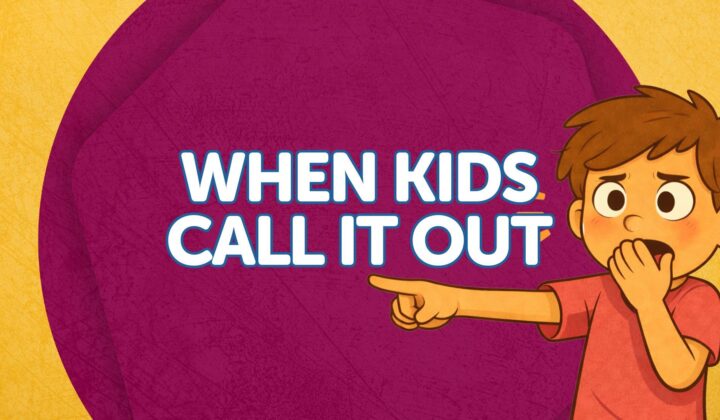Learn more about the journey that led to us equipping kids to carefully evaluate every idea they encounter.
Meet members of our team who have contributed to curriculum development.
Hear from real users of the Foundation Curriculum.
Learn what we believe about God, Jesus, Scripture, and more.
With the Right Resources, Elementary Students Can Engage in Comparative Worldview Analysis
In previous posts, we have seen that our children need comparative worldview education, and they need it in the elementary years. But how do we do this? What type of resources do we need to help our children critically evaluate every message they receive?
This task can seem intimidating, especially for those of us with little experience in education or worldview analysis. However, with the proper resources, instructing our children in comparative worldview analysis can be simple. Here are four crucial components to look for when choosing comparative worldview resources.
1. Systematic Instruction
Anytime we desire to teach for transformation, we must have a plan. We cannot just gather a bunch of good ideas and hope our children learn something in the process. Instead, we must identify what we want our children to know, understand, and be able to do by the end of our instruction. Once we have identified the end destination, we then need to work backward to determine the necessary steps our students must take to arrive there. Effective comparative worldview resources will systematically design instruction.
2. Measurable Goals
Once we have established our long-term plan, we then need to identify specific goals for students to meet along the way. These goals should be measurable. For example, the goal “Students will understand what naturalists worship” is difficult to measure objectively. What criteria qualifies as our children understanding something? However, the goal “Students will summarize in paragraph form what naturalists worship” is easy to measure. Having a concise, measurable goal helps focus our instruction and our children’s thinking. Effective comparative worldview resources will set measurable goals for each lesson.
3. Critical Thinking
Frequently, when teaching our children, we sit them down and explain the concepts we want them to know. We then pat ourselves on the back and feel that everything went well. Yet how often do we find that our eloquent speech went in one ear and out the other? This is because we have merely talked at our children. We have not involved them in the learning process. If we want our children to be transformed by our instruction, they need to be the ones doing the thinking. When children do the thinking, they also do the learning. Effective comparative worldview resources will engage children in thinking through the content.
4. Assessment
Once we have determined the sequence of our instruction, set measurable goals, and involved our children in the learning process, we need to assess whether or not they have met the learning goals. This should be done both in the middle of an instructional unit and at the end.
Assessments measure students’ mastery of content and they help us determine which concepts we may need to review or re-teach before moving on to the next lesson. Effective comparative worldview resources provide assessments tools for every stage of the instructional plan.
If you are feeling overwhelmed by the thought of effectively teaching comparative worldview education on your own, there is good news. Foundation Comparative Worldview Curriculum has already done all of the prep work for you! Foundation is systematically designed with the end goal of equipping our children to think critically, biblically, and missionally. Each lesson includes at least one measurable goal and engages students in the thinking and learning process. And each lesson and unit contain assessments that measure student learning. The work is already done for you, making it easy to implement comparative worldview education in your school, home, or church!

About Elizabeth Urbanowicz
Elizabeth Urbanowicz is a follower of Jesus who is passionate about equipping kids to understand the truth of the Christian worldview. Elizabeth holds a B.S. in Elementary Education from Gordon College, an M.S.Ed. in Education from Northern Illinois University, and an M.A. in Christian Apologetics from Biola University. Elizabeth spent the first decade of her professional career teaching elementary students at a Christian school. Elizabeth now works full time on developing comparative worldview and apologetics resources for children. Her goal is to prepare the next generation to be lifelong critical thinkers and, most importantly, lifelong disciples of Jesus.
Related Posts and insights

Helping Your Child Understand That Love Is a Choice, Not Just a Feeling
Is love just a feeling? Learn how to teach your child that biblical love is a choice using 1 Corinthians 13, with practical weekly tips for every age group.

How to Help Your Child Through Hard Circumstances
Learn five biblical steps to walk your child through suffering and hard circumstances—from demonstrating compassion to helping them look beyond themselves.

Teaching Kids How to Respond to Sin Biblically
Help your child respond to bad behavior they see in public without feeling superior. Learn a 3-step biblical framework for loving others without affirming sin.
